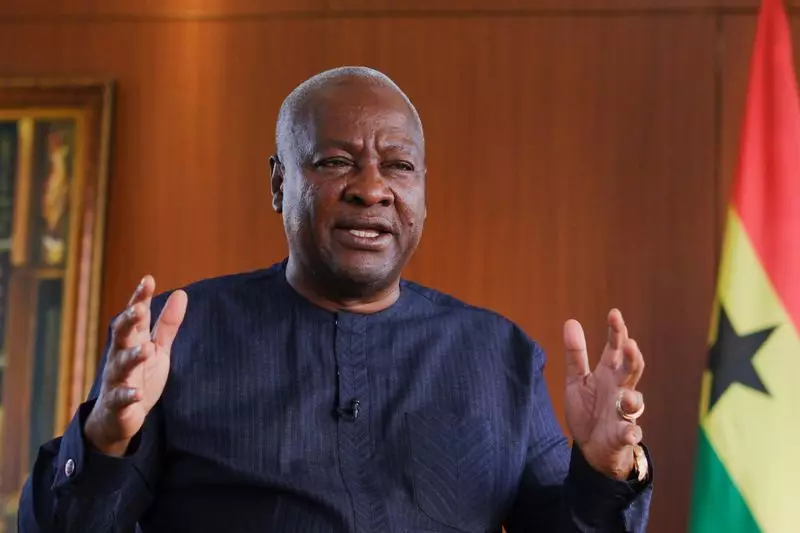The recent electoral victory of John Dramani Mahama marks a significant turning point for Ghana, heralding a new chapter laden with challenges and opportunities. Mahama, who served as president from 2012 to 2016, triumphed in the December 7 elections, capturing the public’s support with 56.55% of the vote. As he steps into office anew, he faces the daunting task of steering the nation out of a profound economic downturn, compounded by pressing issues such as inflation, currency depreciation, and a faltering energy sector.
Commitment to the IMF Deal: A Pragmatic Approach
While Mahama affirmed his commitment to the ongoing $3 billion rescue package with the International Monetary Fund (IMF), he emphasized the need for a thorough review of the agreement. His plan does not involve discarding the program dictated by outgoing President Nana Akufo, but instead seeks to adapt it to better align with current economic realities. This nuanced approach showcases Mahama’s pragmatic mindset; he acknowledges the foundation laid by previous policies yet aims to modify them to foster an environment conducive to growth and sustainability.
A central theme in Mahama’s statement involves addressing state spending, which he described as “wasteful.” By challenging the status quo and calling for more accountability, he signals a shift towards a more fiscally responsible governance model. The president-elect remarked, “If the president is asking us to tighten our belt, he must also tighten his,” emphasizing the need for a united front in financial discipline that starts from the highest levels of leadership.
One of the starkest realities confronting Mahama’s administration is the growing burden of a cost-of-living crisis affecting many Ghanaians. In light of this, he has committed to tackling inflation and currency depreciation head-on. Mahama recognizes that the previous IMF intervention managed to halve inflation and revive growth rates. However, he believes further action is imperative to alleviate the financial strain on households.
His comments underscore the urgency of the situation: “The economic situation is dire.” Such forthrightness is critical as leaders contend with economic metrics that paint a grim picture while striving to connect authentically with citizens. Public trust is vital, and Mahama’s open acknowledgment of the challenges lays a foundation for a more empathetic engagement with the populace.
Perhaps the most pressing issue on Mahama’s agenda relates to the beleaguered energy sector. Often described as the “sick man” of Ghana’s economic landscape, the electricity sector has struggled with inefficiencies and frequent power outages that disrupt daily life and hinder business operations. Mahama’s intention to prioritize sustainable solutions speaks to a forward-thinking vision aimed at stabilizing and rejuvenating this crucial area of the economy.
His vision for the energy sector includes an urgent assessment and overhaul of the state-owned Electricity Company of Ghana, aimed at rendering it more efficient and capable of meeting the nation’s needs. Failure to act decisively could exacerbate existing challenges, making energy reform paramount in Mahama’s plans for economic revitalization.
Looking Ahead: A Collaborative Framework
As Mahama embarks on this ambitious agenda, his track record and prior tenure will likely inform public expectations. His administration not only has to face the economic challenges at hand but must also cultivate a working relationship with the IMF that acknowledges both the financial aid needed and the strategic adjustments required for long-term sustainability.
Discussions on debt restructuring and more efficient tax frameworks will play a pivotal role in how effectively Mahama can implement these plans. By paving a road toward collaboration with global financial institutions, local businesses, and citizens, Mahama could create a more equitable and prosperous future for the Ghanaian people.
As Ghana navigates through turbulent economic waters, John Dramani Mahama’s leadership offers a blend of continuity and change. His pragmatic approach to the IMF deal, earnest commitment to addressing the cost-of-living crisis, and focus on reforming the energy sector signal a hopeful yet challenging journey ahead. The incoming administration must harness collective efforts to ensure that the promises made translate into meaningful changes for all Ghanaians.

